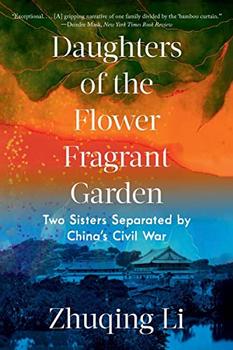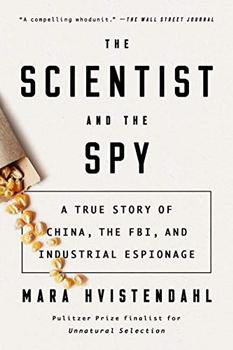Summary | Excerpt | Reviews | Beyond the book | Read-Alikes | Genres & Themes | Author Bio

The True History of Communist China's Founding Myth
by Sun ShuyunThe founding myth of Communist China
is The Long March. Just as Moses led his people to
the Promised Land, Mao led his into a new China -
but how much of the myth as passed down through
official records is actually true? Sun Shuyun
retraces the route of the Long March across a little
changed landscape, relating the first hand accounts
of some of the few remaining survivors who tell
their version of the March unembellished by
political propaganda. The result is a stunning
rewrite of the history that she and about a billion
other Chinese have learned as fact from their
earliest days in school. In place of heroic battles
are ruthless purges, in place of honorable death are
countless desertions and futile loss of life; in
place of honored veterans are thousands who have
suffered for decades at the hands of the Communist
government.
The March was a triumph - a triumph for the power of
propaganda. But should this diminish the respect the
Chinese people have for those who took part in the
Long March? As Sun Shuyun so eloquently shows,
through her interviews with those who were actually
there, the answer is no. While many modern-day
readers may find it hard to comprehend the blind
willingness to follow without question that many of
the Long Marchers displayed, one cannot but admire
their courage and endurance in the face of
circumstances which were actually more harsh than
shown in the historical record.
If these first hand narratives and Sun Shuyun's
research reveal such a different version of The
March, the question then arises how the official
version became so firmly entrenched and
unquestioned. The short answer is that what most of
the Chinese people know of the Long March comes from
a 1938 book of 100 stories collected by Mao's
Political Department. According to the book's
editor, when the request for first hand accounts
went out "articles poured in" and from these the 100
best were chosen; that is to say the 100 that best
conformed with Party lines. The 100 stories are
powerful, and impressive, telling of great battles,
heroism, and the invulnerability and wisdom of Mao.
There's only one catch - most of the soldiers on the
march were illiterate, so Mao ordered a song of the
Long March to be composed. "The Tune of the Long
March" has 13 parts, one for each month of the March
with the last stanza summing things up. All soldiers
could sing the song and, for many, it came to color
their memories. The song turns a ragged retreat into
a glorious victory, and thanks to Mao's great gift
for propaganda and for silencing any dissenting
voices, it has become the founding legend of the
Communist Chinese.
Readers brought up on the history of the Long March,
will be riveted from the opening words. For those of
us brought up in a Western culture who know of the
Long March only as a vague piece of history, it will
take a little longer to get into; but within a
chapter, two at the most, readers with the remotest
interest in history will be fully engrossed in the
first person accounts of foot soldiers such as Woman
Wang, Soldier Huang, Orderly Liu, Propagandist Wu,
Fighter Li, whose stories Sun Shuyun so ably
interweaves with archival research and official
history.
![]() This review was originally published in The BookBrowse Review in September 2007, and has been updated for the
June 2008 edition.
Click here to go to this issue.
This review was originally published in The BookBrowse Review in September 2007, and has been updated for the
June 2008 edition.
Click here to go to this issue.

If you liked The Long March, try these:

Daughters of the Flower Fragrant Garden
by Zhuqing Li
Published 2023
Sisters separated by war forge new identities as they are forced to choose between family, nation, and their own independence.

by Mara Hvistendahl
Published 2021
A riveting true story of industrial espionage in which a Chinese-born scientist is pursued by the U.S. government for trying to steal trade secrets, by a finalist for the Pulitzer Prize in nonfiction.
Harvard is the storehouse of knowledge because the freshmen bring so much in and the graduates take so little out.
Click Here to find out who said this, as well as discovering other famous literary quotes!
Your guide toexceptional books
BookBrowse seeks out and recommends the best in contemporary fiction and nonfiction—books that not only engage and entertain but also deepen our understanding of ourselves and the world around us.